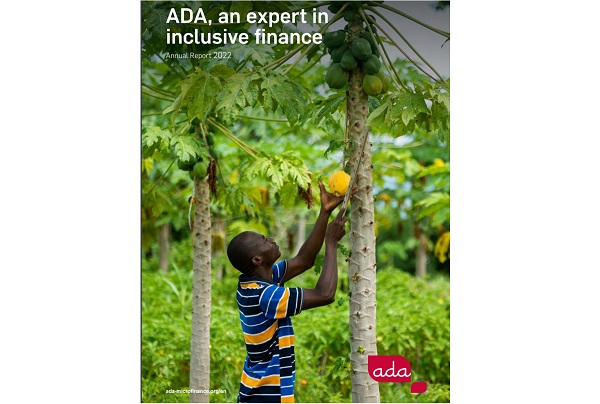 Credit: ADA
Credit: ADA
On Monday 10 July 2023, Luxembourg non-governmental organisation ADA presented its annual report for 2022; last year, the NGO supported over 250,000 vulnerable people in developing countries with tailored financial services.
Active in Africa, Central America and Asia, ADA collaborates with local partners to implement inclusive finance projects which mainly support smallholder farmers, young entrepreneurs and vulnerable households. ADA is co-financed by the Directorate for Development Cooperation and Humanitarian Affairs of Luxembourg's Ministry of Foreign and European Affairs.
According to ADA, basic financial services such as micro-loans and savings products enable these target groups to improve their living conditions thanks to more stable revenues, greater food security and improved hygiene and sanitation.
At the same time, ADA gives small, family-run farms and forestry businesses access to appropriate financing and training in sustainable and climate change-resilient production practices. This reportedly enables them to access markets to purchase high-quality inputs and to sell their produce at a fair price. In 2022, almost 25,000 smallholders benefited from loans for farming, purchasing inputs, mechanisation, processing, storage or marketing, while almost 70,000 farmers and forest owners received financial education as well as training on good practices or entrepreneurship. At the same time, over 58,000 farmers subscribed to an index insurance covering drought and/or flood risks to make them more resilient to climate change. In addition, almost 14,000 farmers currently benefit from improved market access, for example via digital platforms for connecting with other value chain actors, certification or tripartite contracts with buyers or processors and financial institutions, noted ADA.
Moreover, ADA noted that it develops innovative financing mechanisms tailored to the needs of young entrepreneurs, such as long-term loans or flexible, revenue-based loan repayment schemes. The NGO also provides young people with training or coaching to enable them to develop their entrepreneurial and managerial skills. To this end, ADA collaborated with six microfinance institutions who offer specific financial services for young entrepreneurs and with eight business support organisations that offer tailored coaching programmes in 2022. As a result, over 550 entrepreneurs received tailored loans, over 650 benefited from a savings product and almost 400 participated in business support programmes or benefited from a digital accounting service.
Concerning vulnerable households, ADA works to identify innovative and sustainable solutions to provide access to basic services such as energy, housing, water, healthcare and education. Financing solutions are then developed to enable them to benefit from these services at an affordable price. In 2022, ADA collaborated with 21 microfinance institutions to develop financial services to provide access to basic services which enabled 73 households to gain access to water and sanitation, while almost 650 households gained access to renewable energy or energy-saving equipment thanks to a loan and/or via energy providers supported by ADA.
While these activities were a continuation of projects launched under the new strategy in 2021, Laura Foschi, Executive Director of ADA, explained that "2022 was marked by new inclusive green finance projects in Guatemala and Rwanda to provide tailored financing and training to small forestry businesses. Small forest owners and tenants are a new group of beneficiaries for ADA with specific needs; they face longer production cycles and have longer-term financing requirements than farmers. ADA is also experimenting with solutions for linking different local forestry value chain actors and for training forest owners."
For example, ADA is currently running a pilot project with the business incubator Tikonel to strengthen the forestry value chain in the western highlands of Guatemala. More than 60 forest owners have implemented sustainable practices to later supply wood transforming companies at a fair price. In addition, several wood transforming SMEs have received entrepreneurial training.
 Credit: ADA
Credit: ADA
 Credit: ADA
Credit: ADA








